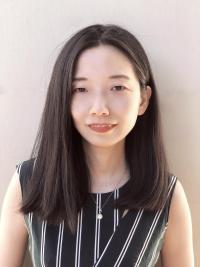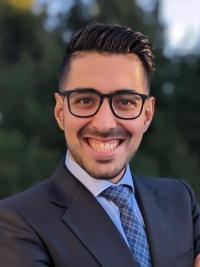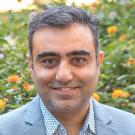
Taking Two from the CHEST
ECE center helps student members secure jobs, advance hardware security in academia in tenure track positions
Today’s industry faces a litany of challenges when it comes to security vulnerabilities in electronic hardware and embedded systems. That is why the UC Davis Department of Electrical and Computer Engineering is proud to be partnering with the National Science Foundation to have the Center for Hardware and Embedded Systems Security and Trust (CHEST) Center.
Led by Professor Houman Homayoun, the mission of the UC Davis CHEST Center to develop a much-needed workforce for government and industry in security hardware. The center aims to coordinate university-based research with the needs of industry and government partners to advance knowledge of security, assurance and trust for electronic hardware and embedded systems.
The success of the program is already being realized. Many of the ECE student members who participate in UC Davis CHEST Center quickly secure positions in academia and industry after graduation where they go on to share the things they learned at the UC Davis CHEST Center for the benefit of others.
Here is a short Q&A with two CHEST alumni, Han (Jane) Wang, Ph.D. ’22 and postdoctoral student Soheil Salehi, who obtained tenure-track positions just a few months after finishing the CHEST program.
Han (Jane) Wang, Ph.D. ’22

What motivated you to join the CHEST Center?
I am very interested in hardware security related topics and aim to address the security challenges in the domain. I could not be more glad that the focus of CHEST Center exactly fits my research interests, and CHEST offers an opportunity for me to know the security challenges from industry, which always inspires my research.
What are the highlights of your research and education/teaching experiences in the CHEST Center?
In the CHEST Center, I have been involved in three research proposals preparation with a total funding of $225,000. Two of the research results related to side-channel attacks detection and malware detection are in filing of patents. Furthermore, I have the chance to mentor junior lab mates including doctoral, masters and undergraduate students. To bridge the teaching and research, I have worked with Professor Houman Homayoun to redesign the computer architecture course, including designing new labs and projects related to applied machine learning for hardware security.
What is next for you and how did the CHEST Center help prepare you for this role?
I will join the ECE department at Temple University this fall semester 2022 as a tenure-track assistant professor. The experience I have gained in CHEST including research proposals preparation, student mentoring, teaching experience will help me in the new role for both starting my own lab, mentoring students and being an independent instructor of courses.
Soheil Salehi, Postdoctoral Scholar and CHEST Fellow

What motivated you to join the CHEST Center?
I was interested in the topic of hardware security. So, I started following the projects performed by CHEST members. I was especially interested in the projects that were performed by Professor Houman Homayoun and his lab at UC Davis. I met Professor Homayoun, who is a leading hardware security researcher and the UC Davis CHEST Site Manager, at a conference in 2019 and I joined his team in 2020 as a Computing Innovation Fellow, sponsored by the National Science Foundation and the Computing Research Association. CHEST’s mission in addressing the vulnerabilities within the hardware of embedded systems, as well as developing the future hardware security workforce, are very inspiring to me and I decided to join CHEST to help with this mission.
What are the highlights of your research and education/teaching experiences in the CHEST Center?
Since joining the UC Davis CHEST Center in September of 2020, I have contributed to nine peer-reviewed publications in prestigious journals and conferences as well as seven successful grants resulting in nearly $2 million in funding. Additionally, I have assisted Professor Homayoun in developing the educational content for a hardware security course and I took part in mentoring and co-advising eight Ph.D. students, two graduate students, and two undergraduate students. In terms of service activities, I have performed peer-review of technical manuscripts for several top-tier conferences and journals. I have served as a member of the technical program committee and chair of a session at several conferences during my postdoc at UC Davis CHEST Center. Furthermore, I attended the CHEST annual and semi-annual meetings in 2021 and 2022, which were great networking opportunities for me to connect with other members of the CHEST from academia and industry, learn about their new and ongoing projects and discuss possible collaboration opportunities.
What is next for you and how did the CHEST Center help prepare you for this role?
I am happy to say that I will be joining the Electrical and Computer Engineering Department at the University of Arizona as a tenure-track assistant professor. During my time at the UC Davis CHEST Center, I have learnt how to effectively mentor undergraduate and graduate students, compose successful grants, and develop a new course and its contents. There are a range of topics in Professor Homayoun’s lab and having the flexibility to work with students who are engaged with different topics, I learned more in-depth about each topic while getting a broader view of the field of hardware security. This also helped me learn how to navigate the challenges in the field and find interesting cutting-edge research topics as well as how to transfer this ability to my future students as a professor. All of these skills are necessary for my success in the role of an assistant professor.

